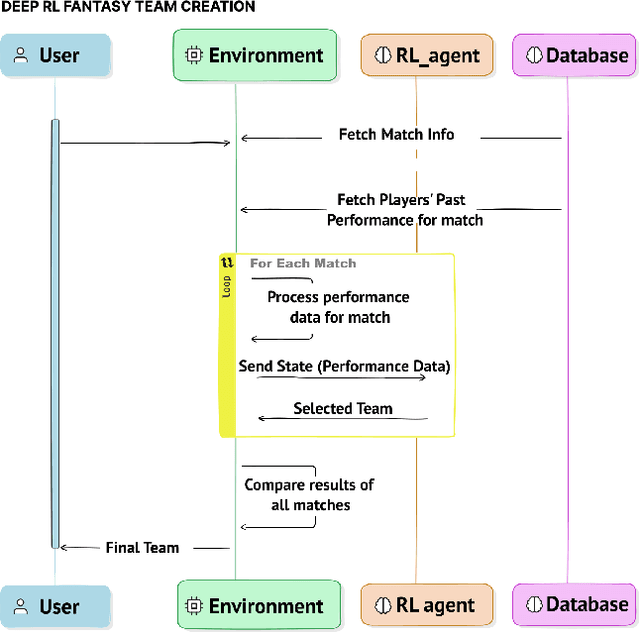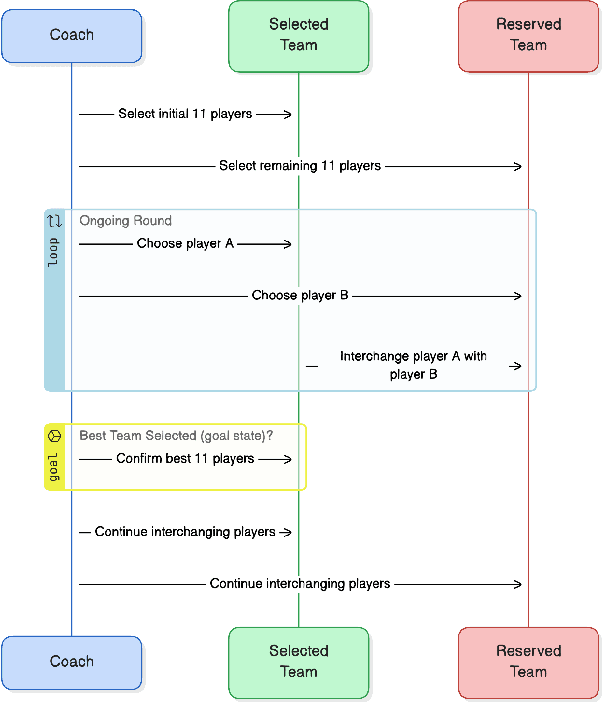Kamlesh Marathe
Optimizing Fantasy Sports Team Selection with Deep Reinforcement Learning
Dec 26, 2024



Abstract:Fantasy sports, particularly fantasy cricket, have garnered immense popularity in India in recent years, offering enthusiasts the opportunity to engage in strategic team-building and compete based on the real-world performance of professional athletes. In this paper, we address the challenge of optimizing fantasy cricket team selection using reinforcement learning (RL) techniques. By framing the team creation process as a sequential decision-making problem, we aim to develop a model that can adaptively select players to maximize the team's potential performance. Our approach leverages historical player data to train RL algorithms, which then predict future performance and optimize team composition. This not only represents a huge business opportunity by enabling more accurate predictions of high-performing teams but also enhances the overall user experience. Through empirical evaluation and comparison with traditional fantasy team drafting methods, we demonstrate the effectiveness of RL in constructing competitive fantasy teams. Our results show that RL-based strategies provide valuable insights into player selection in fantasy sports.
Long Horizon Forecasting With Temporal Point Processes
Jan 08, 2021



Abstract:In recent years, marked temporal point processes (MTPPs) have emerged as a powerful modeling machinery to characterize asynchronous events in a wide variety of applications. MTPPs have demonstrated significant potential in predicting event-timings, especially for events arriving in near future. However, due to current design choices, MTPPs often show poor predictive performance at forecasting event arrivals in distant future. To ameliorate this limitation, in this paper, we design DualTPP which is specifically well-suited to long horizon event forecasting. DualTPP has two components. The first component is an intensity free MTPP model, which captures microscopic or granular level signals of the event dynamics by modeling the time of future events. The second component takes a different dual perspective of modeling aggregated counts of events in a given time-window, thus encapsulating macroscopic event dynamics. Then we develop a novel inference framework jointly over the two models % for efficiently forecasting long horizon events by solving a sequence of constrained quadratic optimization problems. Experiments with a diverse set of real datasets show that DualTPP outperforms existing MTPP methods on long horizon forecasting by substantial margins, achieving almost an order of magnitude reduction in Wasserstein distance between actual events and forecasts.
 Add to Chrome
Add to Chrome Add to Firefox
Add to Firefox Add to Edge
Add to Edge